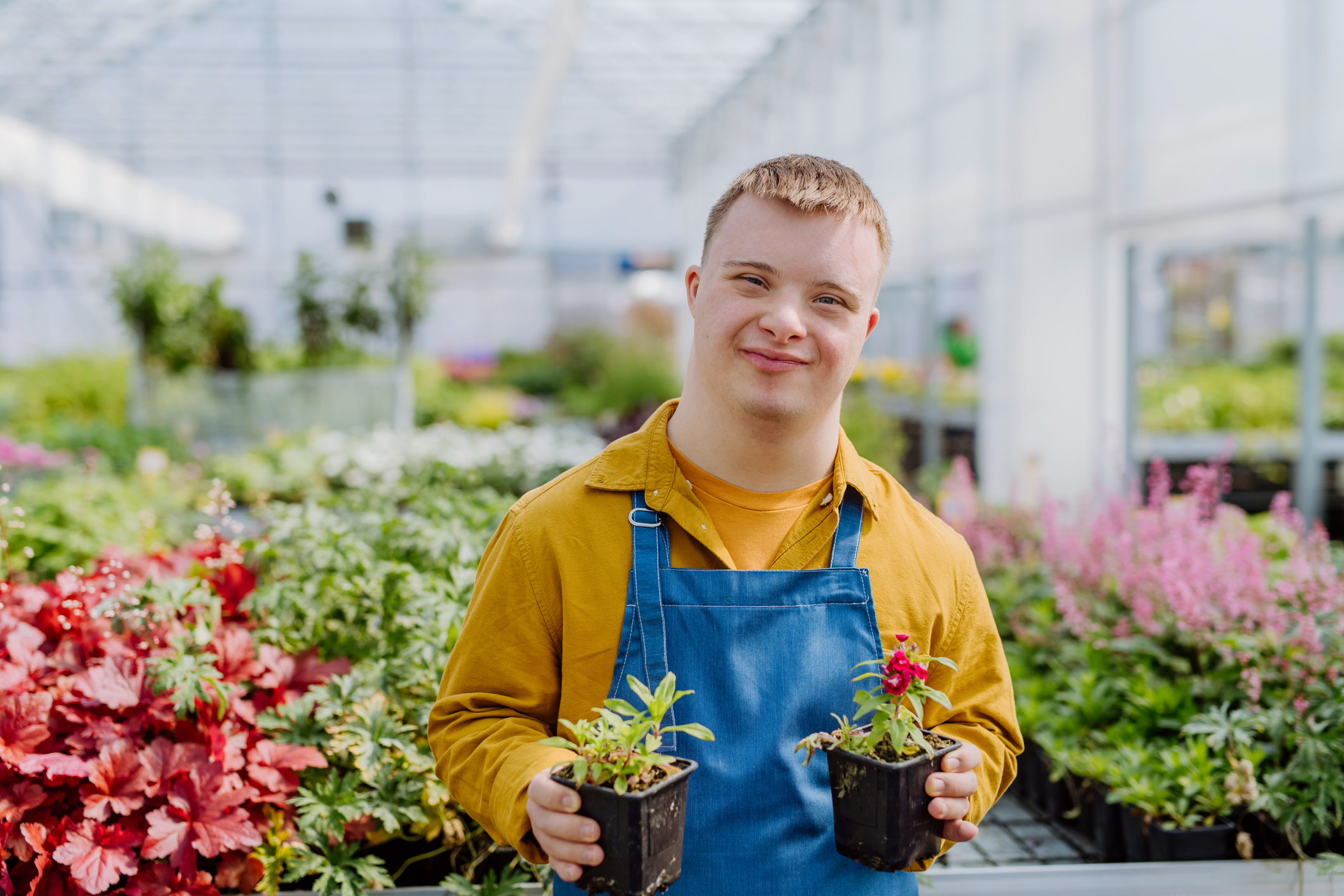Happy First Day of Spring!
Tuesday, May 21, 2023, is World Down Syndrome Day. On this day, we recognize all those affected by this condition, including family, friends, and co-workers.
Down syndrome is a genetic disorder that typically causes developmental delays and disabilities. It can also cause physical complications. DS occurs in about 1 in every 700 babies. Approximately 6,000 babies are born with Down syndrome in the United States each year. It should be noted the rate of Down syndrome cases in the US increased by about 30% between 1979 and 2003.
Three different types of Down syndrome are characterized by how abnormal chromosomal development happens in the cells.
Trisomy 21. This type occurs when there is a separate extra copy of chromosome 21. This is the most common type of the disorder, affecting about 95% of people with Down syndrome.
Translocation Down syndrome. This type happens when an extra copy or extra fragment of chromosome 21 is attached to a different chromosome rather than a distinct extra copy. This is a rare form, affecting only about 3% of people with Down syndrome.
Mosaic Down syndrome. In this type, some of the person’s cells have an extra copy of chromosome 21, but other cells have the usual two copies. The effects of the disorder tend to be milder in this type. Mosaic Down syndrome is the rarest type, accounting for only about 2% of cases.

As a caregiver for someone with Down syndrome, especially if that person is your child, you’re likely to worry about the future; with the proper support, your child can live a full and successful life.
- Teach your child to be independent. Give your child the opportunity to do things for themselves whenever possible. Be alert to your child’s unique strengths and challenges, and find ways to foster self-sufficiency in everyday tasks and situations.
- Don’t be isolated. Stay involved in social activities and events. Allow your child to be a part of the wider world, where they can learn and explore.
- Plan ahead. Think about the skills your child will need in adulthood, especially if you expect your child to eventually live independently. Begin building those skills as early as possible, and plan to develop a support system that will be there for your child in the years ahead.
- Many people with Down syndrome also suffer from other brain-related issues, a condition called co-morbidity; listed below are a few of these:
- People with DS often experience mood disorders such as depression.
- Children with DS are at increased risk for epilepsy.
- People with DS sometimes also exhibit attention-deficit/hyperactivity disorder.
- DS is sometimes co-morbid with autism
Please take this opportunity on World Down Syndrome Day to give a hug, hold a door, pay a compliment, or otherwise recognize those around you affected by Down Syndrome.
For more information on Down Syndrome and over 360 other brain and mental health-related issues and disorders, please visit The United Brain Association’s website at https://unitedbrainassociation.info. And if you can, please donate.
https://unitedbrainassociation.info/brain-resources/down-syndrome/
https://unitedbrainassociation.info/brain-resources/depression/
https://unitedbrainassociation.info/brain-resources/epilepsy/
You Are Not Alone
For you or a loved one to be diagnosed with a brain or mental health-related illness or disorder is overwhelming, and leads to a quest for support and answers to important questions. UBA has built a safe, caring and compassionate community for you to share your journey, connect with others in similar situations, learn about breakthroughs, and to simply find comfort.

Make a Donation, Make a Difference
We have a close relationship with researchers working on an array of brain and mental health-related issues and disorders. We keep abreast with cutting-edge research projects and fund those with the greatest insight and promise. Please donate generously today; help make a difference for your loved ones, now and in their future.
The United Brain Association – No Mind Left Behind




